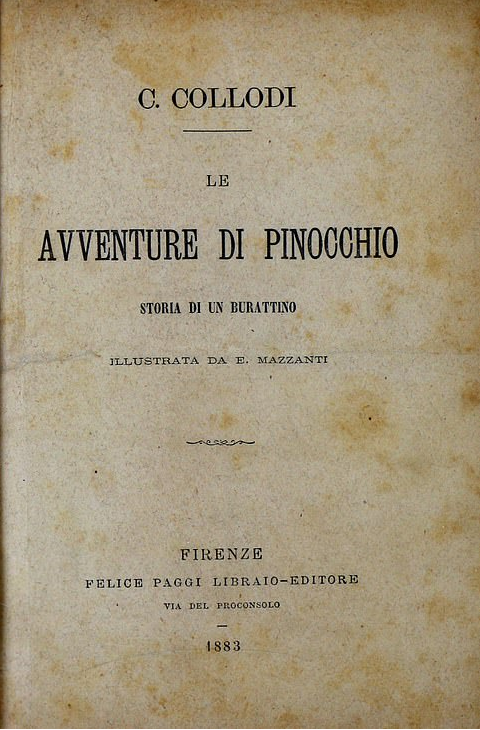
Thanks in part, to Disney, everybody has heard of Pinocchio. The character is such a huge part of our culture that his name is regularly used to describe somebody who lies a lot. Considering the book has had such a long-lasting impact, I couldn’t resist giving it a try. Not that I don’t enjoy classical children’s literature anyway.
So, anyway, a wood carver called Geppetto somehow gets his hands on some living, intelligent wood and so, when he carves it into a marionette of a boy, the boy comes to life and is capable of talking and moving around. I do enjoy things that are generally quite absurd, so for me, this was a solid start.
Once he’s been created though, Pinocchio really is a nasty little creature. He soon causes Geppetto to be wrongly imprisoned for child abuse, then before long, he murders an intelligent, sentient being mid-conversation with him. Throughout the book, Pinocchio is a brat, treating people awfully and generally misbehaving, then consequently crying out for his father when things turn against him.
I don’t know if we’re supposed view Pinocchio as a evil menace, or as an ignorant being who doesn’t yet understand how one is supposed to behave within society, but having him murder somebody so early on does make it rather hard to warm to him. Having said that, the person Pinocchio murders comes back as a ghost a little later, then later still, is just alive again with no explanation, so that does negate the seriousness of his actions somewhat.
As I’m sure you can tell from what I’ve said already, it’s quite a weird book. It’s intentionally written in the style of a fairy tale, but as somebody who has read quite a lot of fairy tales, I feel like they’re generally a little more structured, or at least have more logic behind them than this bizarre sequence of events does. I have to admit, I did rather enjoy this aspect of it.
Although, what I didn’t enjoy was it’s very clumsy attempt at moralising. Now, I love me some morals in my stories, but only when it’s done well (and even if it’s not done well, sometimes, if I think the message is important enough, I still like), but the morals in Pinocchio are so badly done and often no at all agreeable (but, hey, it was the nineteenth century).
On it surface, the book is telling children to behave themselves, tell the truth and listen to their parents. Okay, That’s reasonable – a good take-away for kids. But on the flip side of that, it kind of has the message of “people who are bad deserve to have a terrible fate”. There’s a particularly silly bit towards the end where Geppetto tells Pinocchio “Remember to always show kindness to everybody you meet, no matter what” then they meet a couple of people who had tricked Pinocchio earlier on and who are now on the brink of death and in need of help – Pinocchio coldly looks the other way and refuses to help and Geppetto doesn’t have anything to say about it. The implication is that they got what they deserved and it wouldn’t even have so much of a problem with that on its own, but coming straight after “always show kindness to others” makes the whole thing a bit ridiculous. Was it intentional? Maybe, I don’t know. It gave me a good laugh, either way.
I think the two aspects that surprised me the most were its silliness and its darkness. I mentioned above that it has a message about bad people getting what they deserve, well, that extends to include children. There’s one trouble-making boy (who’s no worse than Pinocchio) and he ends up dying in slavery. Poor boy. Pinocchio himself faces death on a number of occasions too, but that sneaky little weasel always manages to get out of it in the end.
All in all, I did enjoy this book, but I do see that it has a lot of flaws, worst of all is the fact that the writing style seems quite bland a lot of the time. It could have generated a lot of humour around its absurdity, but it never really does. It’s a very base-level writing style that never really does more than tell you what’s happening or what you’re supposed to think. I guess this is a side effect of it having been written for children originally and me reading it as an adult, but it did leave me feeling unengaged a lot of the time, even if I did enjoy the overall journey. (Worth noting is that some of these problems may be limited to the translation that I read, but unfortunately, my version does not credit the translator, so I am not able to specify which version I read).
Rating: 5.9/10
